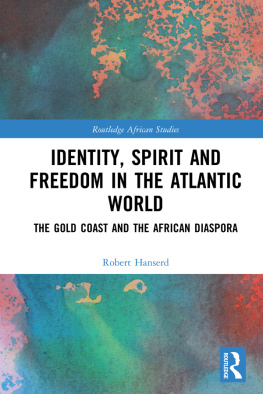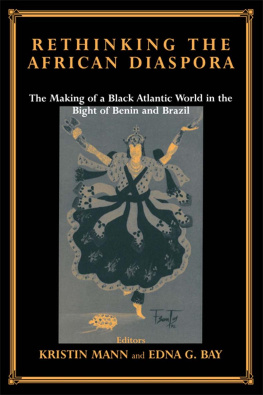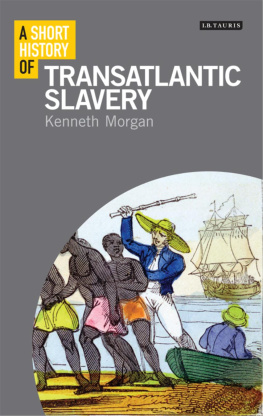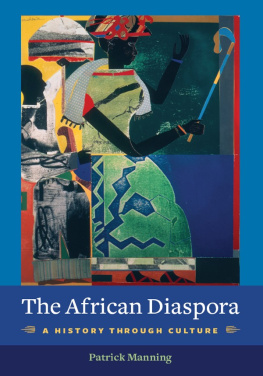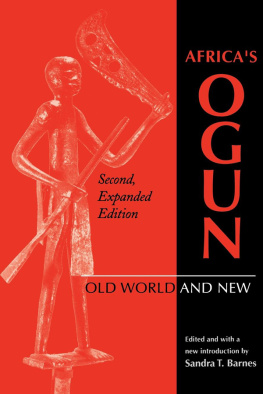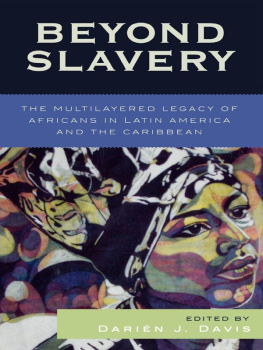Undercurrents of Power

THE EARLY MODERN AMERICAS
Peter C. Mancall, Series Editor
Volumes in the series explore neglected aspects of early modern history in the western hemisphere. Interdisciplinary in character, and with a special emphasis on the Atlantic World from 1450 to 1850, the series is published in partnership with the USC-Huntington Early Modern Studies Institute.
Undercurrents of Power
Aquatic Culture in the African Diaspora
Kevin Dawson

Copyright 2018 University of Pennsylvania Press
All rights reserved. Except for brief quotations used for purposes of review or scholarly citation, none of this book may be reproduced in any form by any means without written permission from the publisher.
Published by
University of Pennsylvania Press
Philadelphia, Pennsylvania 19104-4112
www.upenn.edu/pennpress
Printed in the United States of America
on acid-free paper
10 9 8 7 6 5 4 3 2 1
Library of Congress Cataloging-in-Publication Data
Names: Dawson, Kevin (Historian), author.
Title: Undercurrents of power: aquatic culture in the African diaspora / Kevin Dawson.
Other titles: Early modern Americas.
Description: 1st edition. | Philadelphia: University of Pennsylvania Press, [2018] | Series: The early modern Americas | Includes bibliographical references and index.
Identifiers: LCCN 2017032704 | ISBN 9780812249897 (hardcover: alk. paper)
Subjects: LCSH: African diasporaHistory. | AfricansAmericaEthnic identityHistory. | SlavesAmericaSocial conditions. | Aquatic sportsAfricaHistory. | Aquatic sportsAmericaHistory. | Boats and boatingAfricaHistory. | Boats and boatingAmericaHistory.
Classification: LCC DT16.5 .D39 2018 | DDC 305.896/070903dc23
LC record available at https://lccn.loc.gov/2017032704
To the waters of the Atlantic world and those enslaved Africans
who suffered and endured so their story might be told
Contents
Our story begins in the Pacific, off the island of Hawaii, in Kealakekua Bay. Here, on January 22, 1779, surgeons mate David Samwell wrote an early account of surfing, an account capturing Western apprehensions of water and other peoples affinity for gliding through liquid infinities: These People find one of their Chief amusements in that which to us presented nothing but Horror & Destruction, and we saw with astonishment young boys and Girls about 9 or ten years of age playing amid such tempestuous Waves that the hardiest of our seamen would have trembled to face. The sailors looked upon this as no other than certain death. Like other Europeans, Samwell viewed surfing as mere amusement, failing to comprehend non-Western cultural understandings of water. Conveying Western land-oriented perceptions, he reveals how anxieties about swimming caused white people to misconstrue Hawaiian aquatic traditions, while regarding water as an unnatural element and swimming as a life-threatening pursuit. The playground of Hawaiian youth was a place of Horror & Destruction for white men who had just spent three years at sea.
Societies carve diverging identities from their interactions with and historicization of the same ocean. In many important ways, Westerners are terracentriclandlocked, mentally if not physicallytreating waterways as empty, cultureless, historical voids. In 1620, William Bradford, governor of Plymouth Colony, captured beliefs concerning humans natural relationships with land as he witnessed the landing of Pilgrims who fell upon their knees and blessed the God of Heaven, who had brought them over the vast and furious ocean and delivered them from all the perils and miseries, again to set their feet on the firm and stable earth, their proper element.
For more than a millennium, there has been a concerted effort to suppress the sea with religious, scientific, and historical perceptions beginning and ending on the terra firma. Scripture tells us humanity began in the Terrestrial perspectives treat water as a border for land-bound events and an intercontinental highway, concluding that cultural creation was restricted to land.
Water covers some 70 percent of the earth. Most people live near water. Water dominates much of Atlantic Africa.
Undercurrents of Power: Aquatic Culture in the African Diaspora examines aquatic fluencies to consider how African-descended peoples charted cultural constellations onto New World waterscapes while forging similar communities of practice and meaning. African-born and country-born (or those born in the Americas) slaves re-created and reimagined African traditions as they cast cultural anchors into ancestral waters while interlacing diverse ethnic valuations upon New World waterscapes. Grounded in the eighteenth century, this book extends from 1444, when the Portuguese first entered sub-Saharan Africa, to 1888, when Brazil became the last New World society to abolish slavery.
Like watermarks on paper, aquatics can leave ineffaceable impressions on cultures, on memories, and on ones sense of place and identity. Water was a defining feature for African-descended peoples living along seas, rivers, lakes, and estuaries as immersionary traditions enabled many to merge water and land into unified culturescapes. Accounts indicate many were adept swimmers, underwater divers, and canoeists.
In Africa, the construction and use of dugout canoes was imbued with spiritual and secular meanings. Canoes were a central means of conveyance, possibly moving more goods than any other method. Men and women preparing to use them for fishing, market voyages, visiting family members and friends, and warfare made offerings to water deities and dugouts, asking for guidance and protection.
The Atlantic slave trade created a cultural watershed, channeling traditions to the Americas where slaveholders clustered Africans into ethnic enclaves. Imported Africans constructed cultural beachheads, exercising muscle memories that provided New World waters with echoes of home. Sources suggest that captives used African-informed canoe designs and swimming and canoeing techniques to maintain ethnic traditions while forging new identities in multiethnic communities of belonging.
Aquatics enabled unwilling colonists to forge semiautonomous cultural worlds as they traveled more extensively than previously assumed, gaining privacy away from white authority. Parting blue and green waters while swimming and canoeing, many African captives enjoyed their exploited bodies while temporarily escaping the gray monotony of agricultural bondage. Many leveraged their expertise for lives of privileged exploitation.
Maritime retentions resulted from converging phenomena. During free time, saltwater (or African-born) captives of the same ethnicity purposefully re-created traditions, while members of diverse groups reimagined and merged customs. Slaveholders forced some to maintain traditions when members of the same and discrete ethnicities constructed and crewed dugouts or formed underwater dive teams. Multiethnic labor forces faced communication obstacles. Still, similar customs, spiritual beliefs, building techniques, and aesthetic valuations seemingly permitted waterscapes and dugouts to possess meanings for all as traditions coalesced.
Undercurrents of Power expands traditional interpretations of how we examine the past. The Chesapeake, for instance, is one of the most examined regions of America. Historian Rhys Isaacs broadened our historical understandings, explaining how Virginians of different ranks experienced their surroundings as they went through them, heading out from home along ways that connected them. Cutting through fields and woods, bond-people gained subtle knowledge of their alternative territorial system.
Next page

